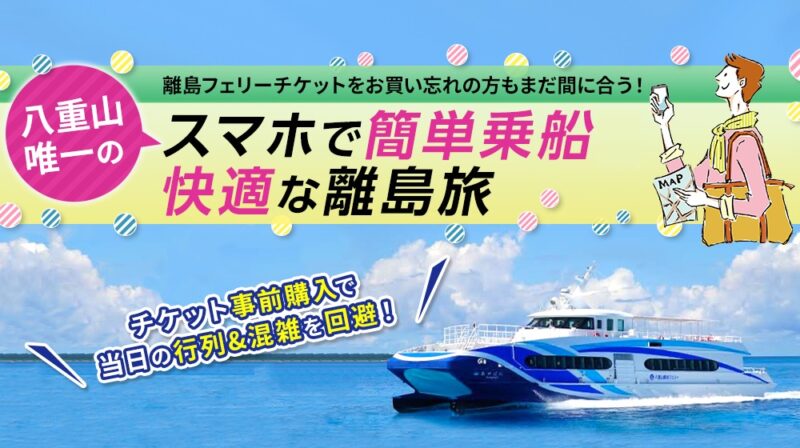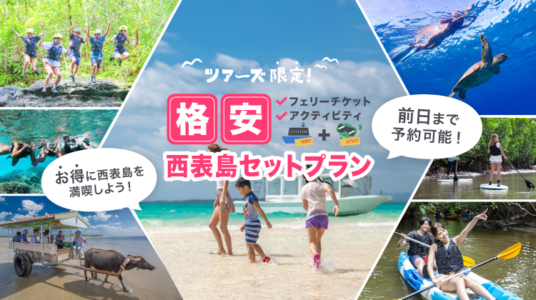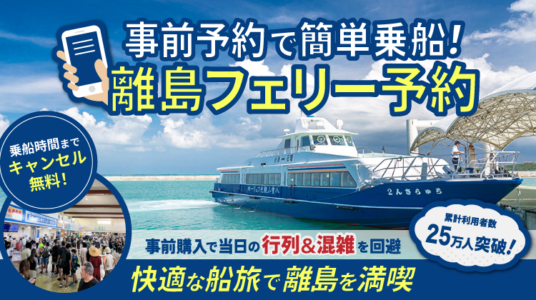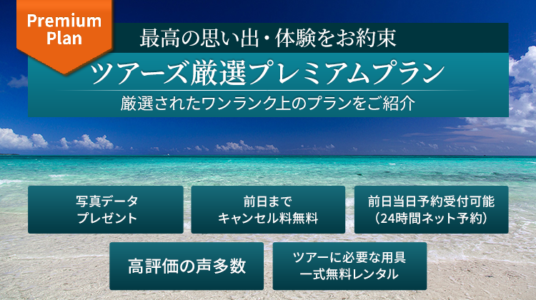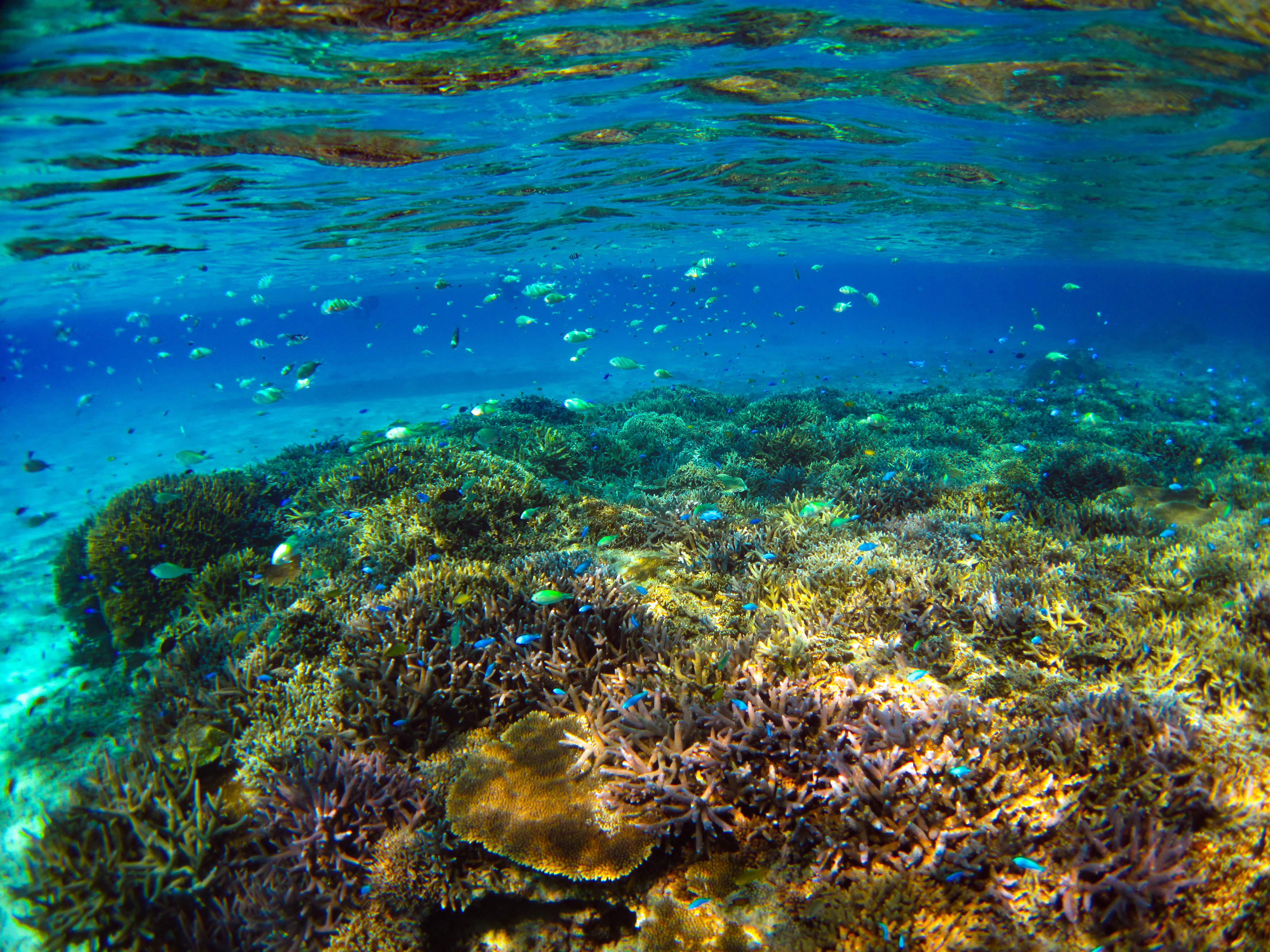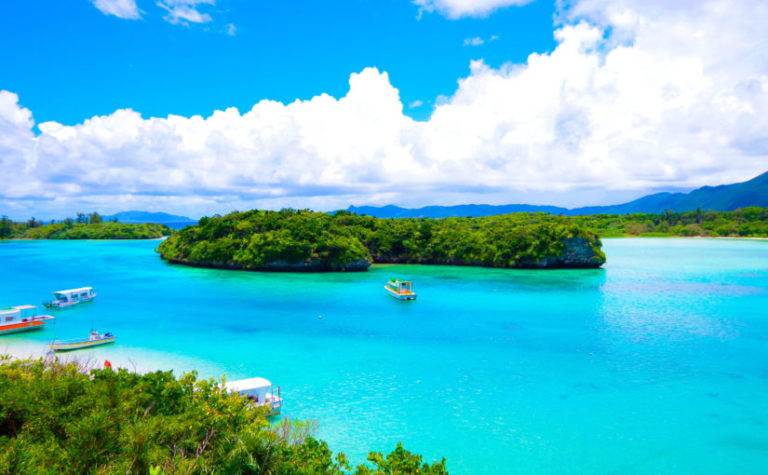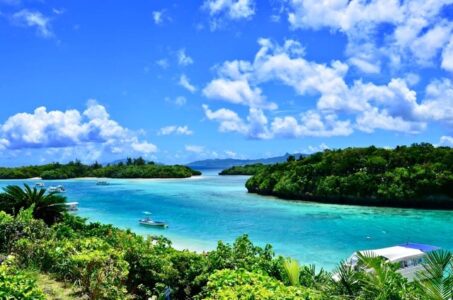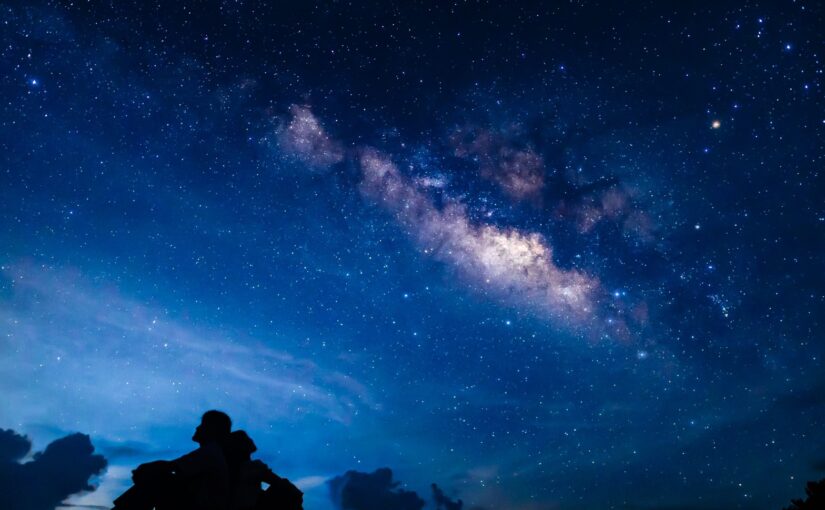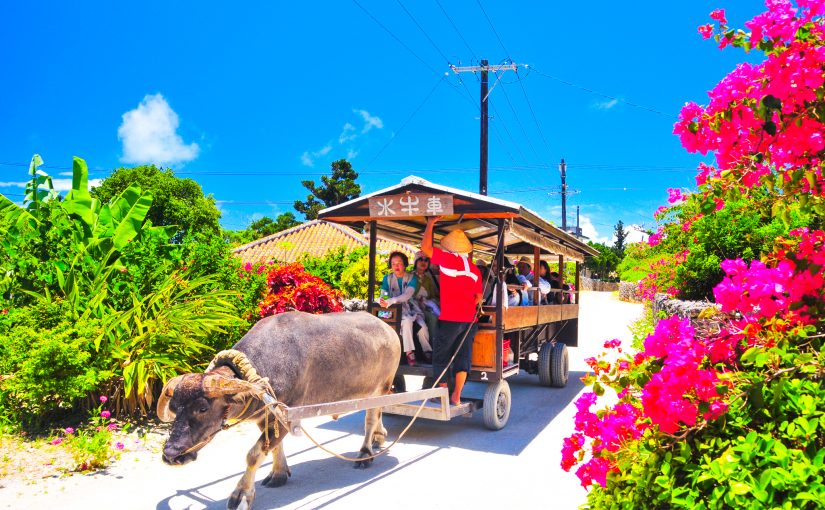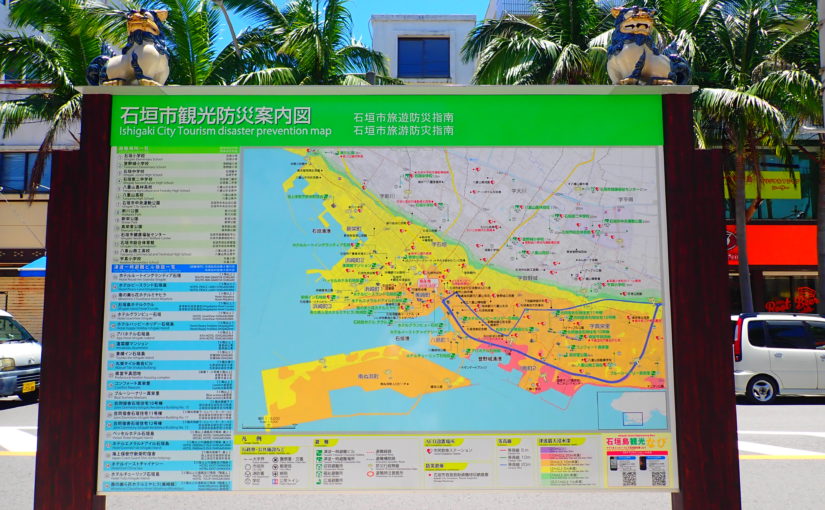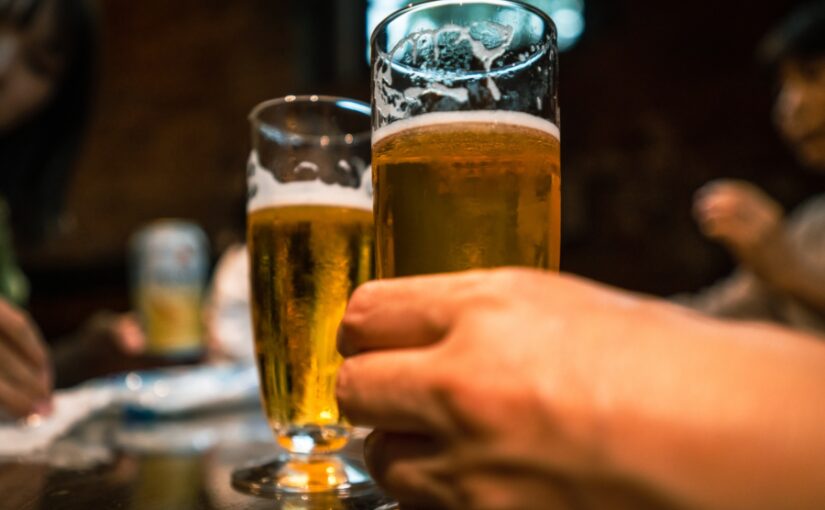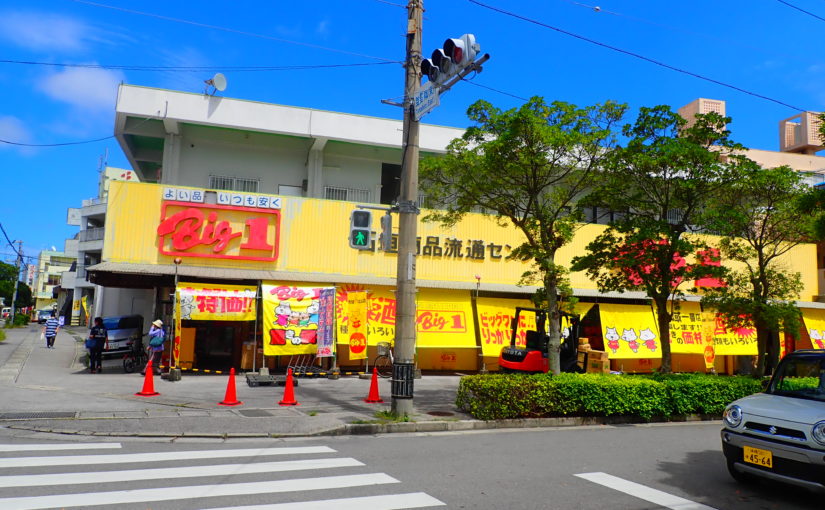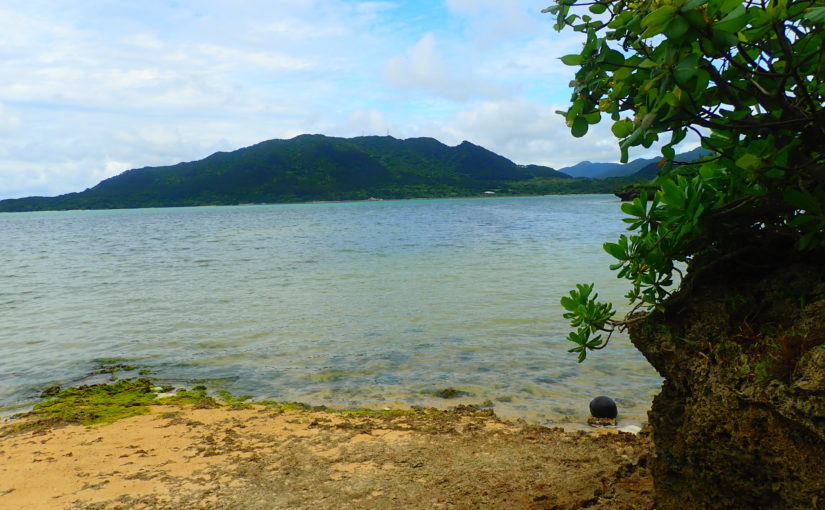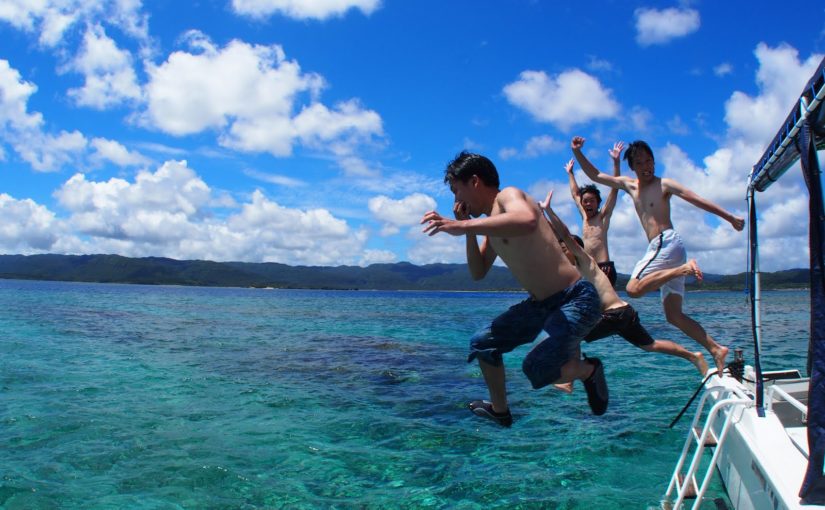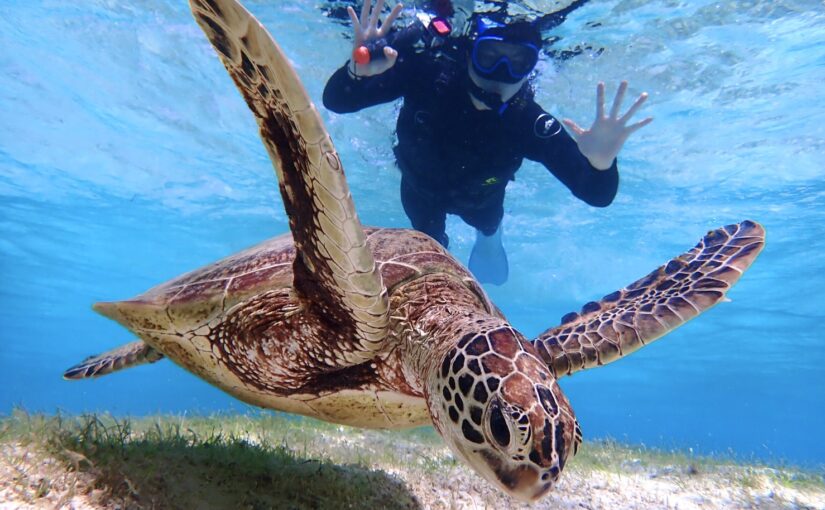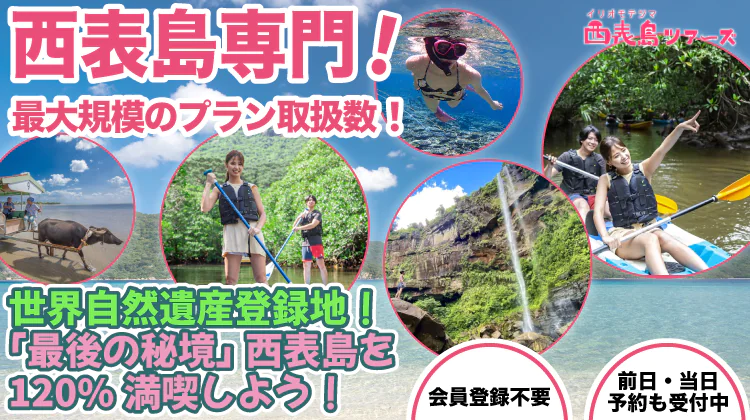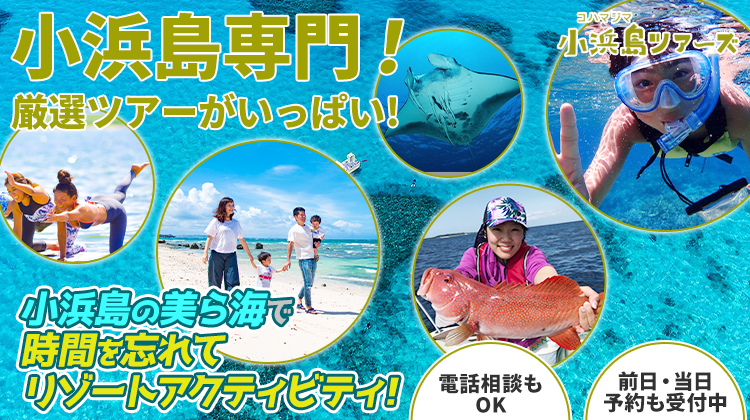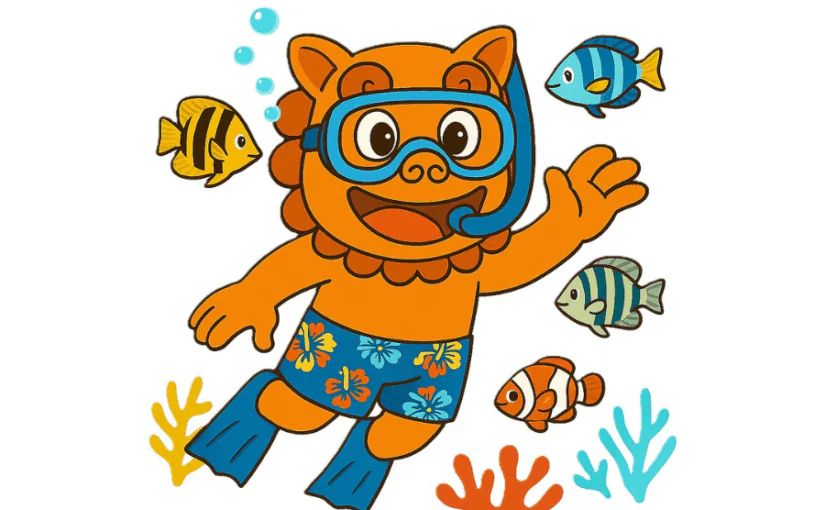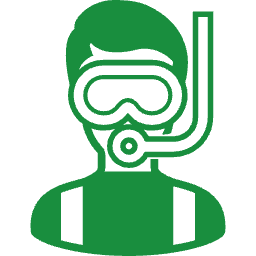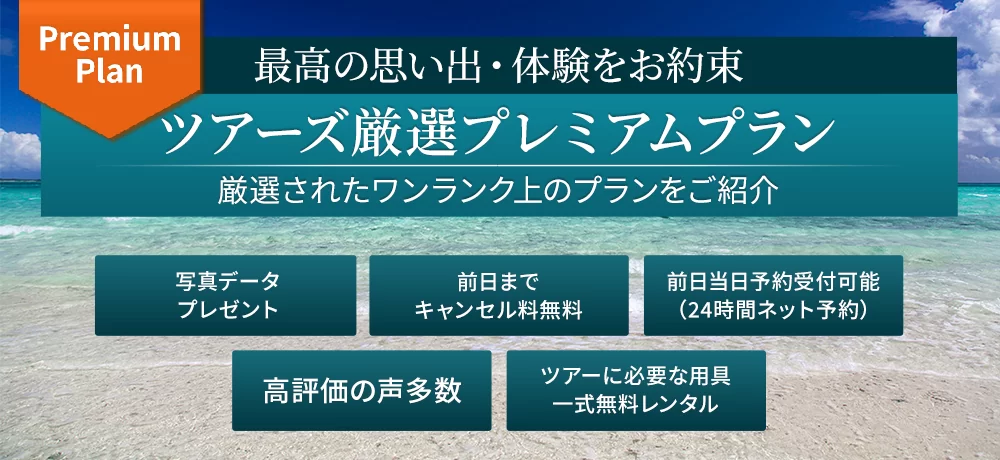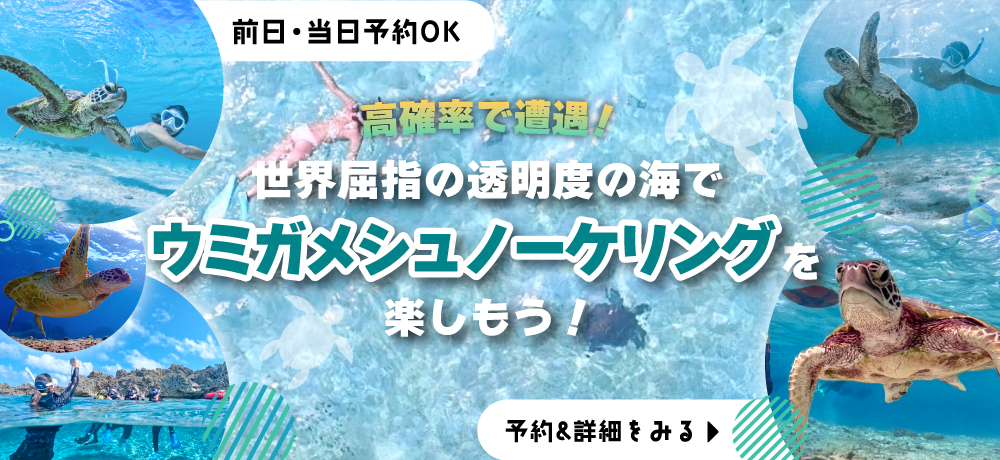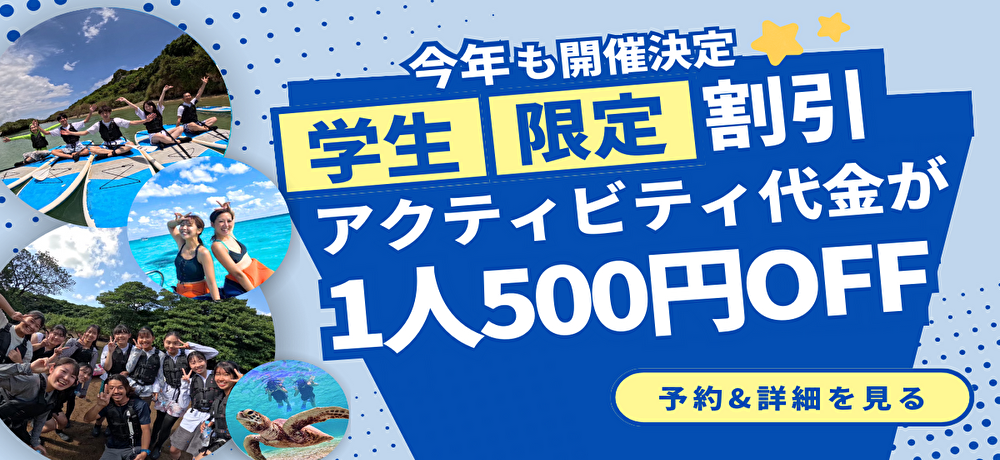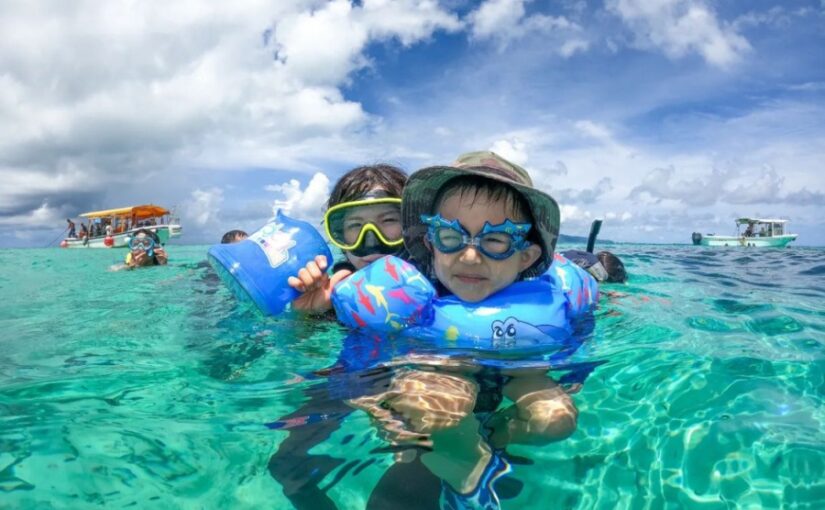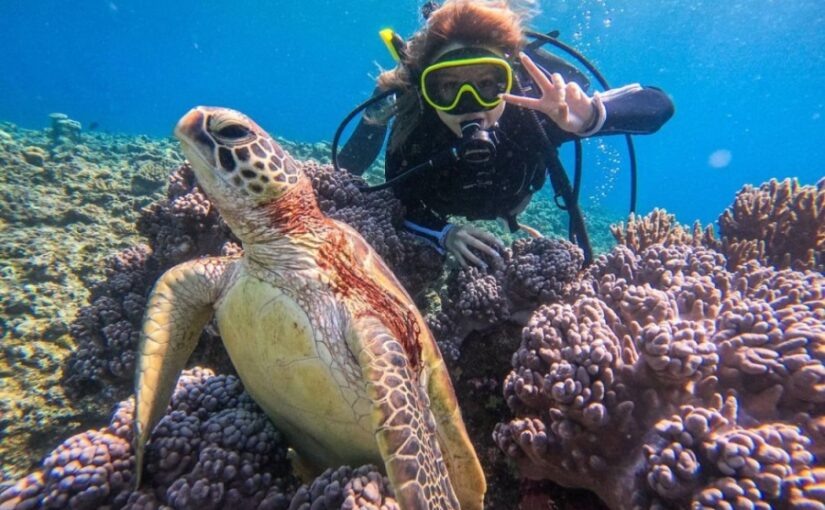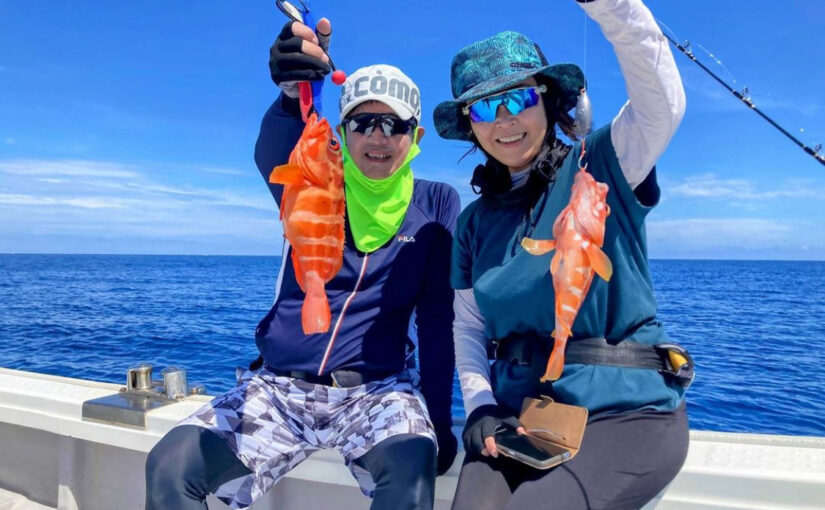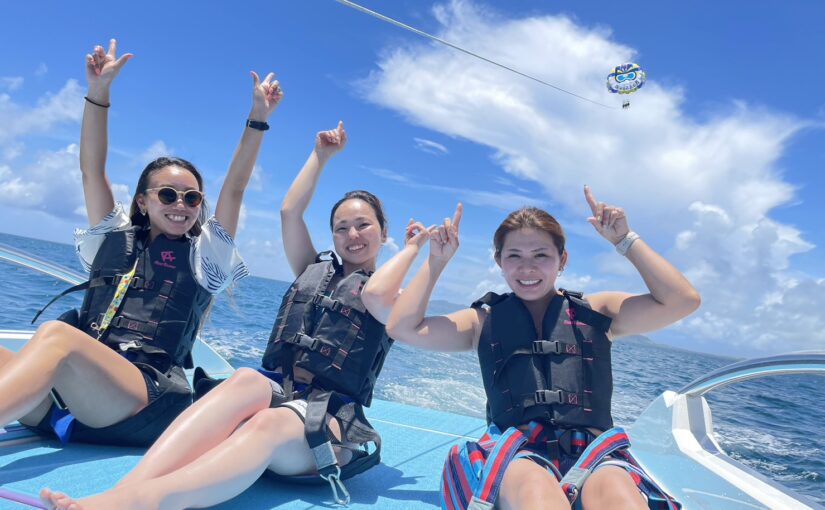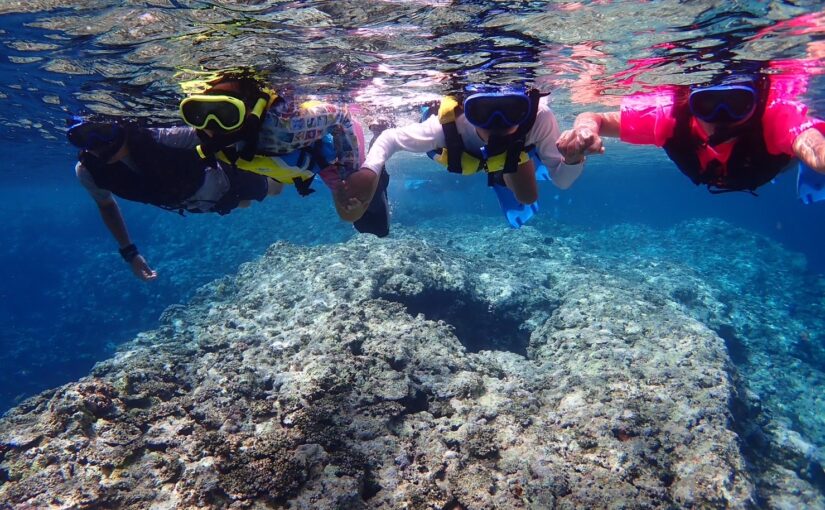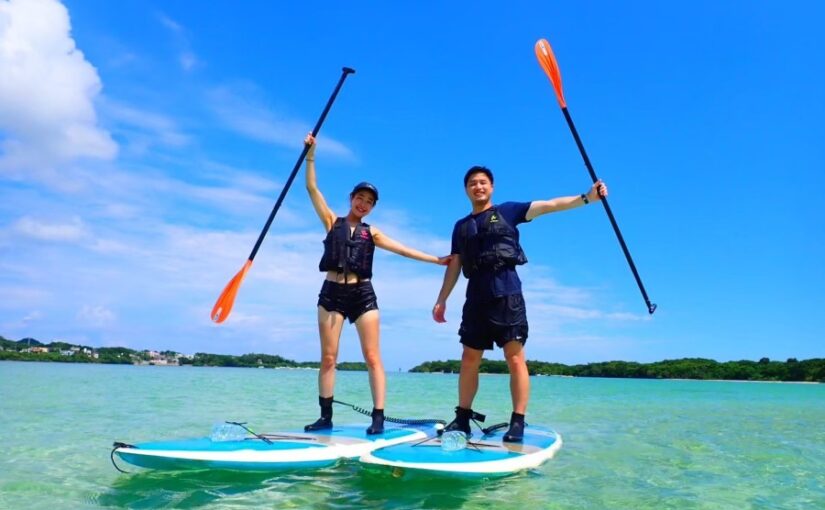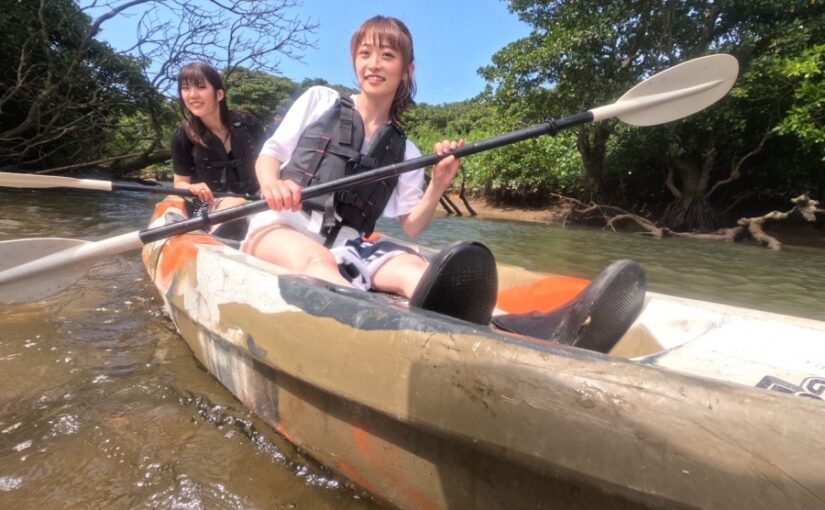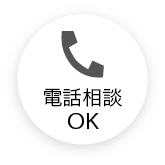5 corals you can see in Ishigaki Island! Local staffs introduce recommended spots and popular tours.
Table of Contents
- 1 Ishigaki Island is a treasure trove of beautiful coral
- 2 5 typical corals found on Ishigaki Island
- 3 5 Coral Reef Spots on Ishigaki Island
- 4 A worldwide problem What is coral bleaching?
- 5 Coral Reef Conservation Activities on Ishigaki Island Coral Reef Conservation Activities
- 6 What you can do for coral
- 7 Conclusion
At Ishigaki Island Tours, you can experience authentic activities just like the show♪
Now is the time to go on a real wilderness adventure!
Ishigaki Island is a treasure trove of beautiful coral
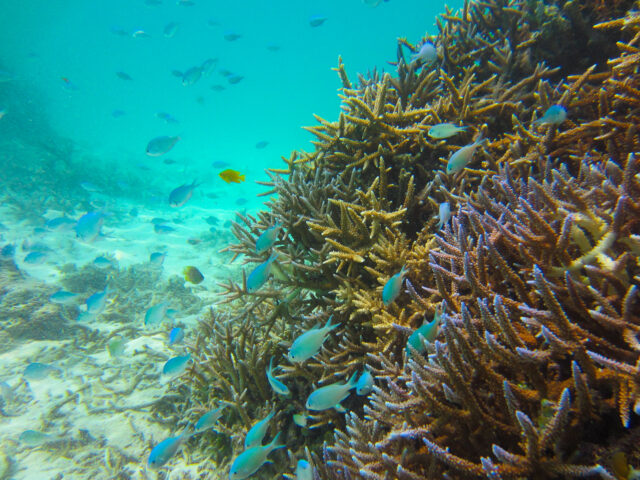
Ishigaki Island is known as one of the most treasured coral reefs in Japan,Globally valuable marine ecosystemsThe company boasts a
The sea of Ishigaki Island looks like a beautiful emerald green,Pure white sand formed by crushed coralandIt's because it reflects the light that reaches the seafloor and makes the seawater shine.
In this issue, we will introduce five spots where you can see beautiful coral reefs on Ishigaki Island, as well as coral that is important for both marine life and people's lives.
◆If you want to know about corals in Ishigaki Island
◆Ishigaki Island for those who want to enjoy marine activities
◆ those who are interested in coral issues and conservation activities
Observe beautiful corals!
Click here for the ranking of snorkel tours in Ishigaki Island.
5 typical corals found on Ishigaki Island

A wide variety of corals can be found on Ishigaki Island, but we will introduce five of the most representative ones.
Observe beautiful corals!
Click here for a ranking of recommended tours in Ishigaki Island.
1. blue coral
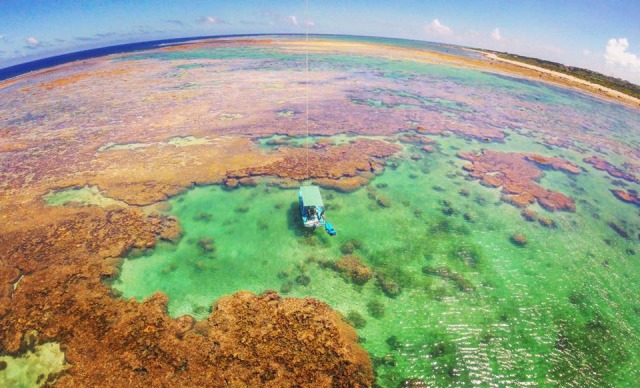
Blue corals are so named because their skeletons are blue in color, although they appear brown or green when alive.
A famous coral reef site stretching along the east coast of Ishigaki Island,Shiraho CoastTo,Considered the largest and oldest in the northern hemisphereThe world-famous blue coral colonies can be seen.
This precious coral is listed as an endangered species II.
2. Table coral
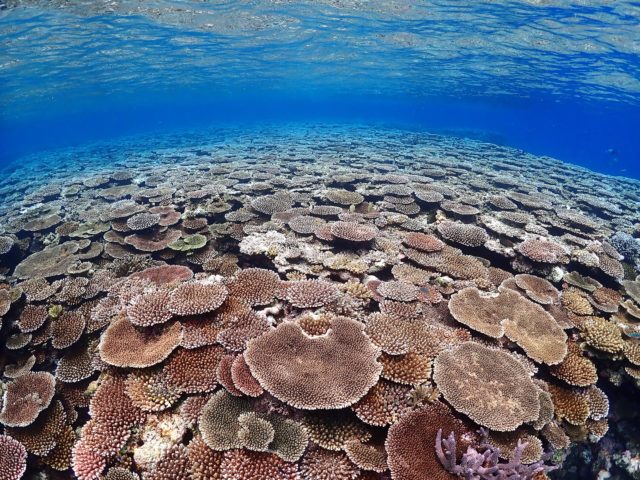
Kabira Bay and Yonehara BeachTable corals are often seen in As the name suggests, it is characterized by its table-like spreading shape.
It plays an important role as a hiding place for small fish.
3. coral reefs
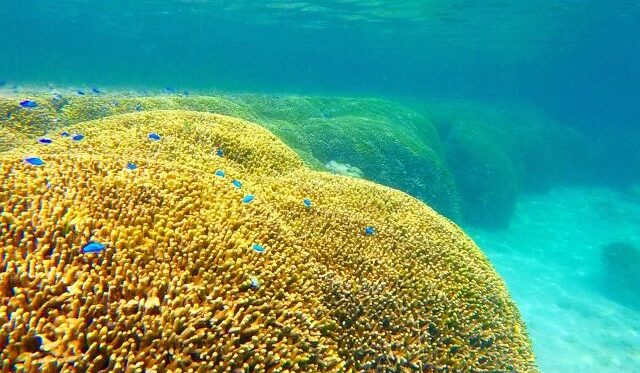
It is round, large, lumpy, and has a "brain coralHamago coral, also known as "yellow coral," is a slow-growing coral. Slow growing,in the order of a few hundred yearsThe size increases with
The photo shows the "Kobieda Hamasango" coral that lives in the Shiraho area.
4. Elder coral
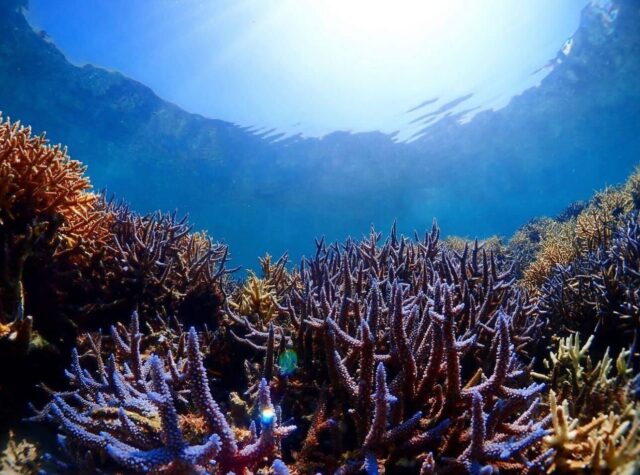
With its branching shape, the eda coral looks like a small forest underwater and is home to small fish.
They can be found in shallow reefs and tidal areas.
5. Kusabiraishi
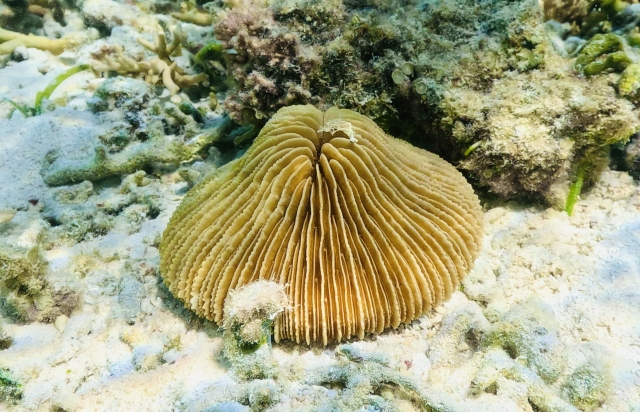
Cuscabiales live alone and have an interesting fan or leaf-like shape. It adapts well to soft sandy substrates, and what aAble to move on their own.This is a rare coral.
5 Coral Reef Spots on Ishigaki Island
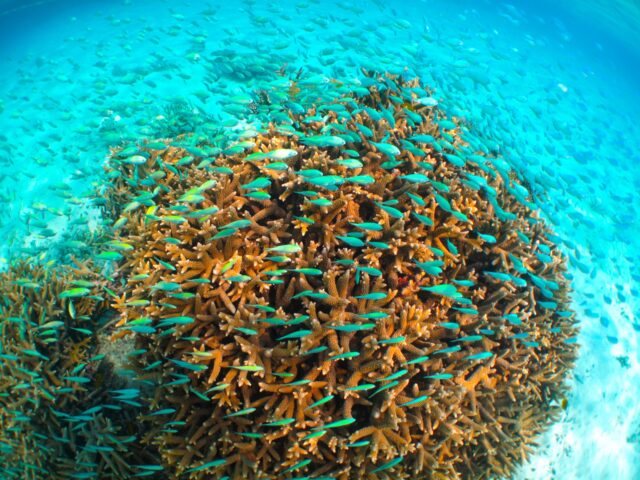
Let us introduce the main coral reef spots on Ishigaki Island.
Observe beautiful corals!
Click here for a ranking of recommended tours in Ishigaki Island.
Shiraho Coast
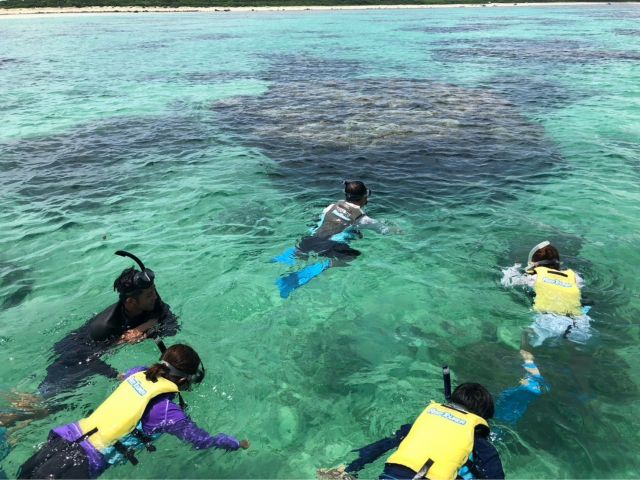
Shiraho Beach is one of the top blue coral colonies in the world and also one of the best beaches in Ishigaki Island.More than 70 species of corals and abundant tropical fishis famous for its habitat.
Snorkeling tours are also offered. Up close, you will be impressed by the huge colony.
Shiraho is also an important area for coral research and conservation, as several groups are engaged in coral reef conservation activities based in Shiraho.
Access: 5 minutes by car from Ishigaki Airport
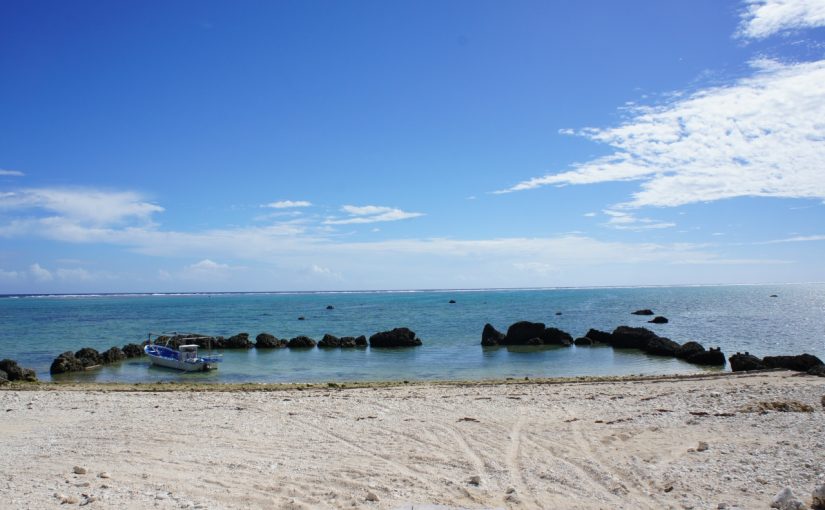 Ishigaki Island-Shiraho Beach About Shiraho Beach Shiraho Beach is located in the eastern part of the island, about 5 minutes by car from Shin-Ishigaki Airport, on the way from the airport to the city center, and about 20 minutes by car from the city center. The natural white sand beach stretches for about 10 km, and the population [...].
Ishigaki Island-Shiraho Beach About Shiraho Beach Shiraho Beach is located in the eastern part of the island, about 5 minutes by car from Shin-Ishigaki Airport, on the way from the airport to the city center, and about 20 minutes by car from the city center. The natural white sand beach stretches for about 10 km, and the population [...]. Held at Shiraho Coast! Click here for recommended tours
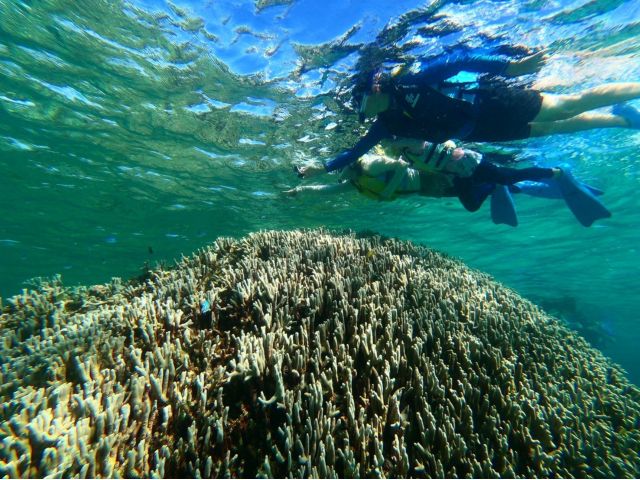 The largest blue coral colony in the northern hemisphere is impressive☆Spectacular "Shiraho Beach" snorkeling tour (No.560)開始時間8:30-11:30 / 12:30-15:30所要時間Approx. 3 hours9,000 yen
The largest blue coral colony in the northern hemisphere is impressive☆Spectacular "Shiraho Beach" snorkeling tour (No.560)開始時間8:30-11:30 / 12:30-15:30所要時間Approx. 3 hours9,000 yen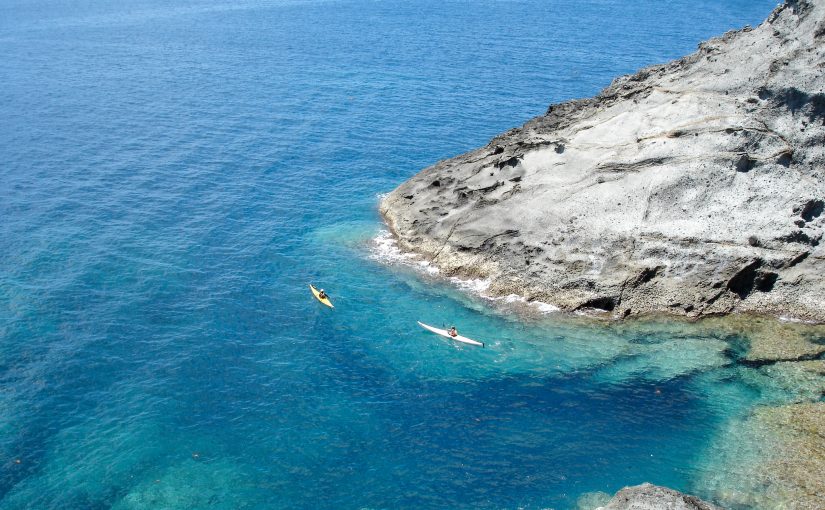 Ishigaki Island] Dense coral reefs! Ishigaki Island Sea Kayak & Snorkeling 1 Day Course《With Happy Lunch》(No.416)開始時間9:00-16:30所要時間Approx. 7 hours15,000 yen
Ishigaki Island] Dense coral reefs! Ishigaki Island Sea Kayak & Snorkeling 1 Day Course《With Happy Lunch》(No.416)開始時間9:00-16:30所要時間Approx. 7 hours15,000 yen
2. Yonehara Coast
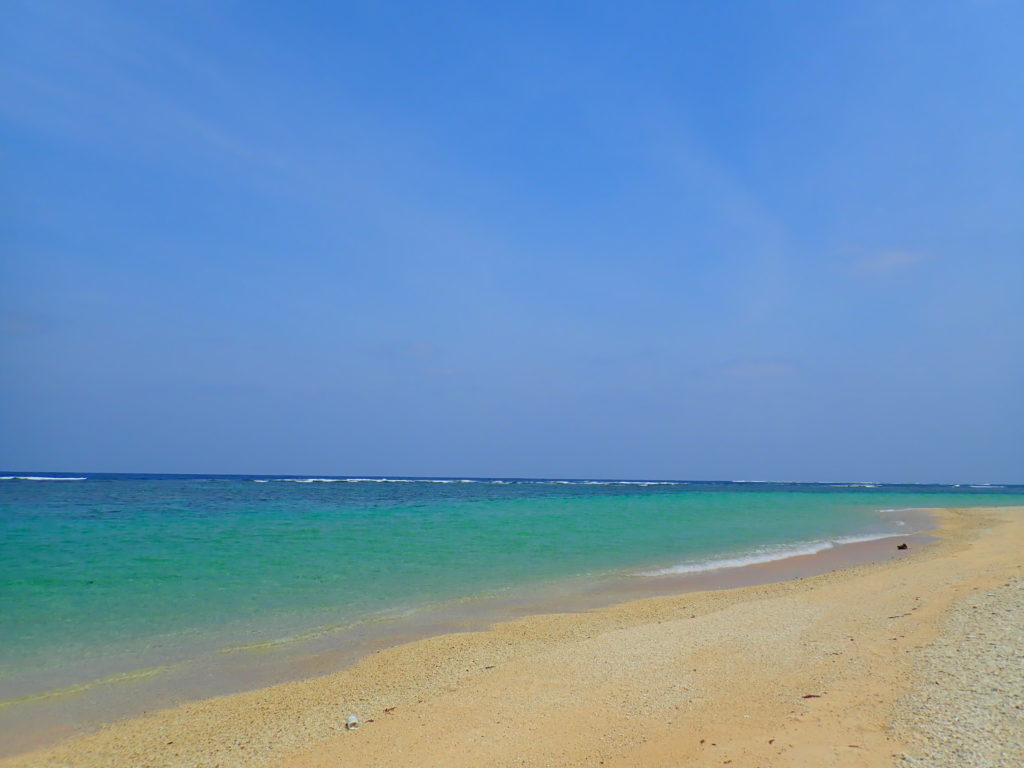
Yonehara Beach is located in the northern part of Ishigaki Island where the gently curving coastline with lush greenery is very beautiful.
The sea is teeming with colorful corals and colorful tropical fish.
Rental store and store for marine goods,Toilets and showers availableThe snorkeling is available in the area, and you can enjoy snorkeling at your leisure.
Access: Approximately 40 minutes by car from Shin-Ishigaki Airport
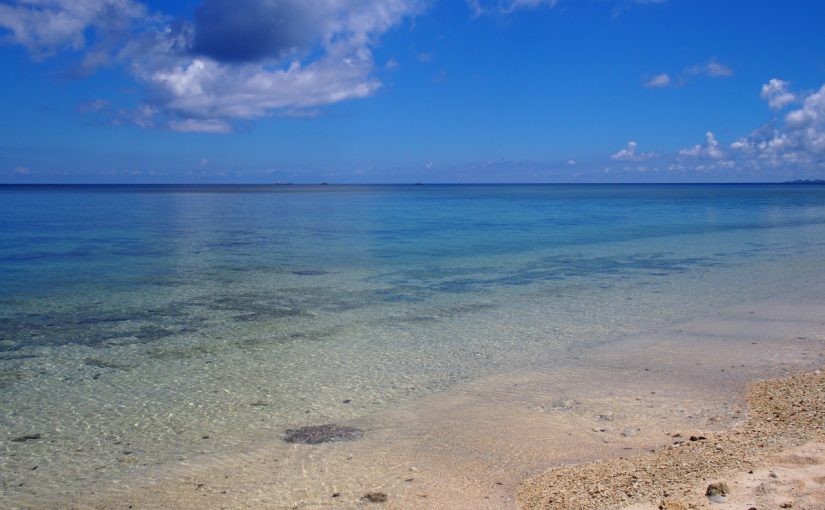 Ishigaki Island-Yonehara Beach About Yonehara Beach Yonehara Beach is located in the northern part of Ishigaki Island and is one of the most popular snorkeling spots in Ishigaki Island. You can enjoy the clear water and colorful coral reefs, and the exciting experience of swimming with tropical fishes. It is also recommended for families [...].
Ishigaki Island-Yonehara Beach About Yonehara Beach Yonehara Beach is located in the northern part of Ishigaki Island and is one of the most popular snorkeling spots in Ishigaki Island. You can enjoy the clear water and colorful coral reefs, and the exciting experience of swimming with tropical fishes. It is also recommended for families [...].
3. Phantom Island (Hamashima)
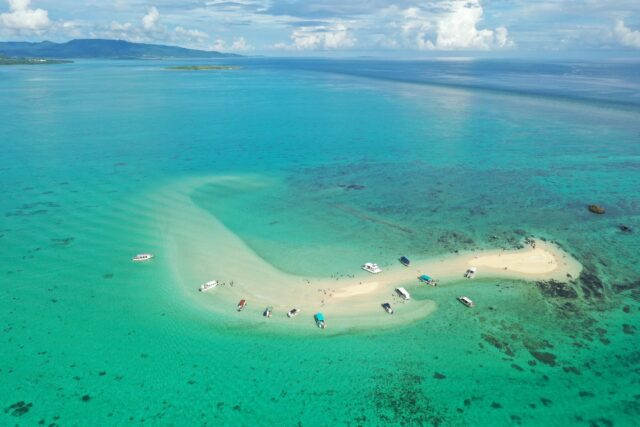
Hamashima Island is located 10 km west of Ishigaki Island and does not exist on the map between Kohama Island and Taketomi Island.Crescent-shaped uninhabited islandand the surrounding area is a snorkeling spot where coral can be seen.
It is called a "phantom island" because its shape changes with the tide,You can only go ashore by taking a tour.The following is a list of the most common problems with the
Access: 30 minutes by boat from Ishigaki Island, 15 minutes from Kohama Island
Click here for recommended phantom island tours
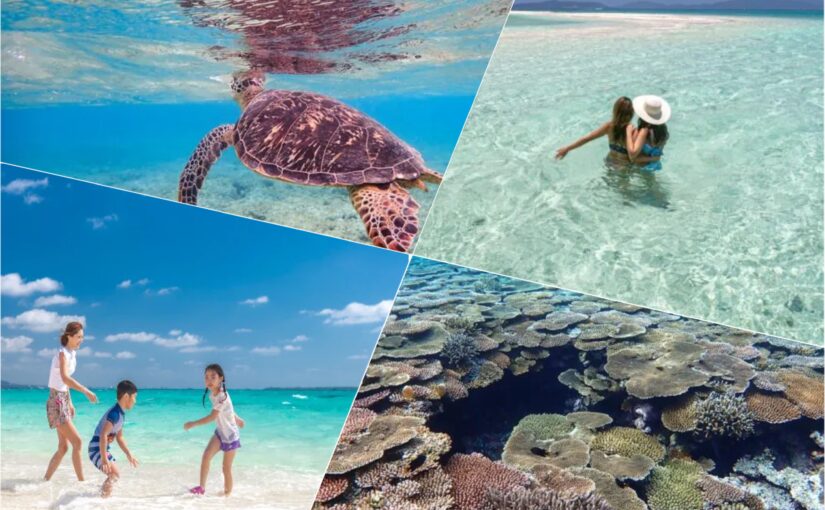 Ishigakijima/Half-Day Tour】Making an Impression with 360°Spectacular View☆Photo Free & Pickup & Drop-off Included》(No.458)開始時間8:00-11:30 / 13:30-16:30所要時間Approx. 3 hours14,500 yen →7,900yen
Ishigakijima/Half-Day Tour】Making an Impression with 360°Spectacular View☆Photo Free & Pickup & Drop-off Included》(No.458)開始時間8:00-11:30 / 13:30-16:30所要時間Approx. 3 hours14,500 yen →7,900yen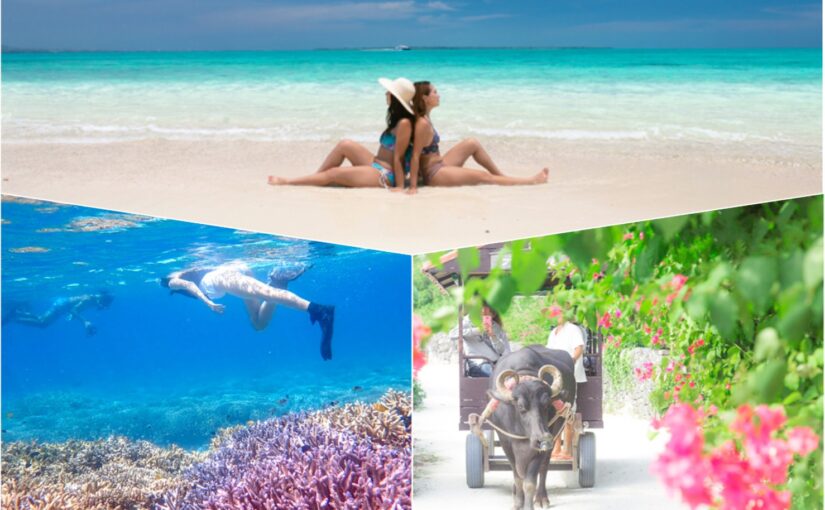 Special Winter SALE【Ishigaki Island / 1 Day】Take in 2 remote islands to the fullest! Spectacular "Phantom Island" Landing + Snorkeling & Relaxing "Taketomi Island" Sightseeing 《Photo free & Transportation included》(No.459).開始時間8:00-16:30所要時間Approx. 6 hours19,600 yen →9,800yen
Special Winter SALE【Ishigaki Island / 1 Day】Take in 2 remote islands to the fullest! Spectacular "Phantom Island" Landing + Snorkeling & Relaxing "Taketomi Island" Sightseeing 《Photo free & Transportation included》(No.459).開始時間8:00-16:30所要時間Approx. 6 hours19,600 yen →9,800yen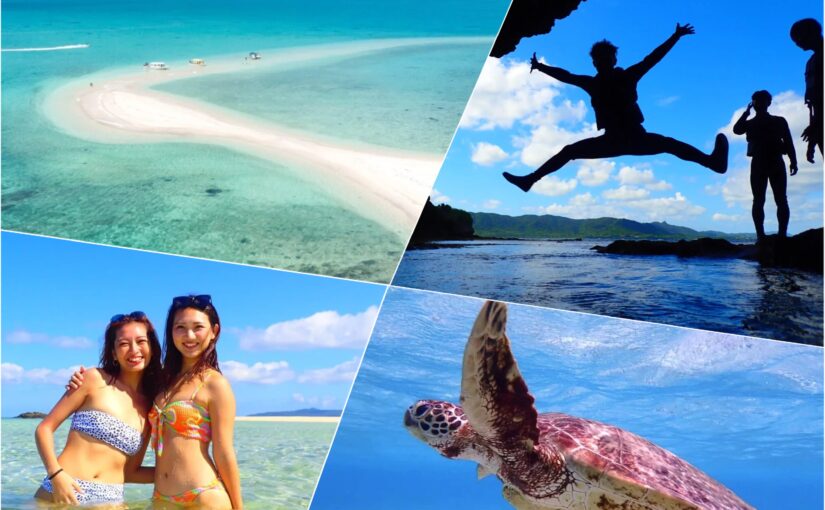 Special Winter SALE【Ishigaki Island / 1 Day】To the Phantom Island & Blue Cave! Ishigaki Island Perfect Snorkeling Pack Tour《with free photo & pick up & drop off》(No.460)開始時間8:00-16:30所要時間Approximately 8.5 hours29,000 yen →15,000yen
Special Winter SALE【Ishigaki Island / 1 Day】To the Phantom Island & Blue Cave! Ishigaki Island Perfect Snorkeling Pack Tour《with free photo & pick up & drop off》(No.460)開始時間8:00-16:30所要時間Approximately 8.5 hours29,000 yen →15,000yenLearn more about Phantom Island
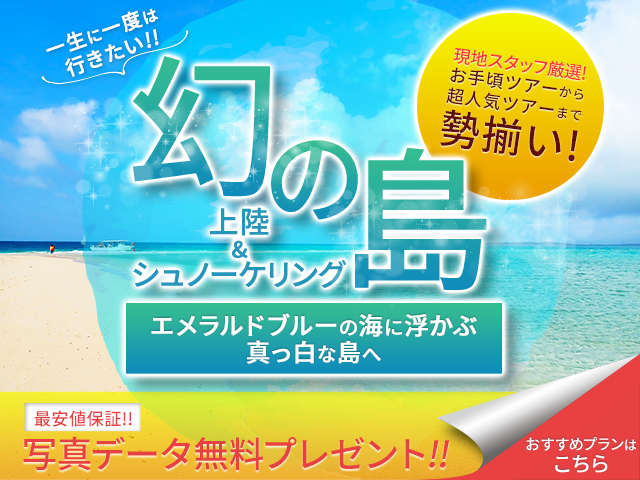 Phantom Island (Hamashima) Tour The hottest spot from Ishigaki Island! There is a spot called "Phantom Island (official name: Hamashima)" located about 30 minutes by boat from Ishigaki Island. It appears only at low tide when the tide is ebbing, and sinks like a phantom at high tide. (46 total) アクティビティの詳細を見る
Phantom Island (Hamashima) Tour The hottest spot from Ishigaki Island! There is a spot called "Phantom Island (official name: Hamashima)" located about 30 minutes by boat from Ishigaki Island. It appears only at low tide when the tide is ebbing, and sinks like a phantom at high tide. (46 total) アクティビティの詳細を見る
4. Kabira Bay
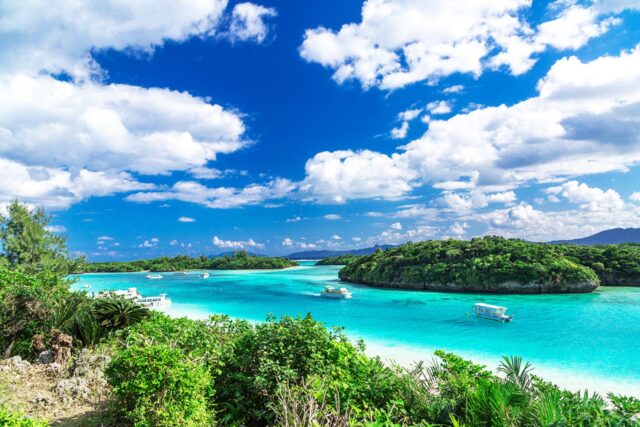
Kabira Bay is the most scenic spot in Ishigaki Island. It is a world-class scenic spot that was awarded 3 stars by Michelin Green Guide.
The crystal clear waters have excellent water quality and are used for the cultivation of black pearls.
Within Kabira Bay areCanoeing, SUP, glass boatYou can also cruise on the "Kaiyodo" (a small boat) and observe colorful corals and tropical fishes from the sea.
Access: 25 minutes by car from Shin-Ishigakijima Airport, 30 minutes by car from the remote island terminal
Held at Kabira Bay! Click here for recommended tours
 Kabira Bay" SUP Tour★Michelin Guide 3-star Tour★Free Photo & Pick-up Service (No.301)開始時間9:00-11:30 / 13:30-16:00所要時間Approx. 2.5 hours14,500 yen →7,900yen
Kabira Bay" SUP Tour★Michelin Guide 3-star Tour★Free Photo & Pick-up Service (No.301)開始時間9:00-11:30 / 13:30-16:00所要時間Approx. 2.5 hours14,500 yen →7,900yen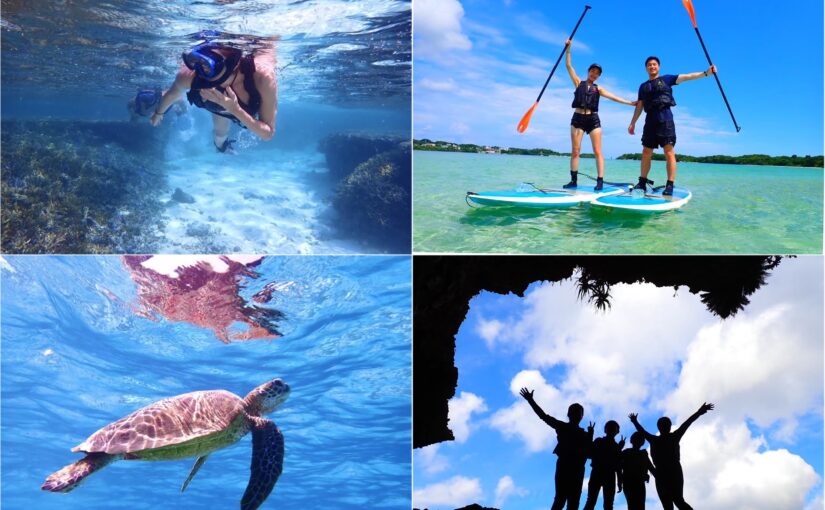 Special Winter SALE 【Ishigaki Island / 1 Day】If you are in doubt, this is it☆Let's look for sea turtles! Kabira Bay SUP/Canoe & Blue Cave Snorkeling Tour ★ (No.349)開始時間9:00-16:00所要時間Approx. 7 hours29,000 yen →13,500yen
Special Winter SALE 【Ishigaki Island / 1 Day】If you are in doubt, this is it☆Let's look for sea turtles! Kabira Bay SUP/Canoe & Blue Cave Snorkeling Tour ★ (No.349)開始時間9:00-16:00所要時間Approx. 7 hours29,000 yen →13,500yen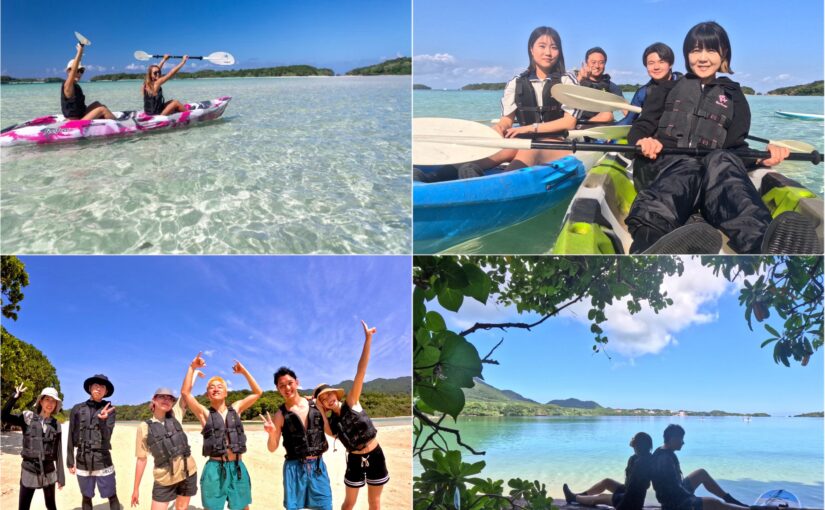 Ishigaki Island/Half Day] Same-day reservation OK! Kabira Bay" Kayak Tour ★Free Photo & Pick-up & Drop-off (No.302)開始時間9:00-11:30 / 13:30-16:00所要時間Approx. 2.5 hours14,500 yen →7,900yen
Ishigaki Island/Half Day] Same-day reservation OK! Kabira Bay" Kayak Tour ★Free Photo & Pick-up & Drop-off (No.302)開始時間9:00-11:30 / 13:30-16:00所要時間Approx. 2.5 hours14,500 yen →7,900yenLearn more about Kabira Bay
 Kabira Bay Tour A must visit when you come to Ishigaki Island! Kabira Bay in Ishigaki Island is rated as a three-star scenic spot worth visiting by the guidebook "Michelin Green Guide Japon". In this issue, we will introduce Kabira Bay's [...]. (36 in total) アクティビティの詳細を見る
Kabira Bay Tour A must visit when you come to Ishigaki Island! Kabira Bay in Ishigaki Island is rated as a three-star scenic spot worth visiting by the guidebook "Michelin Green Guide Japon". In this issue, we will introduce Kabira Bay's [...]. (36 in total) アクティビティの詳細を見る
5. Shihsi Jiaohu Lake
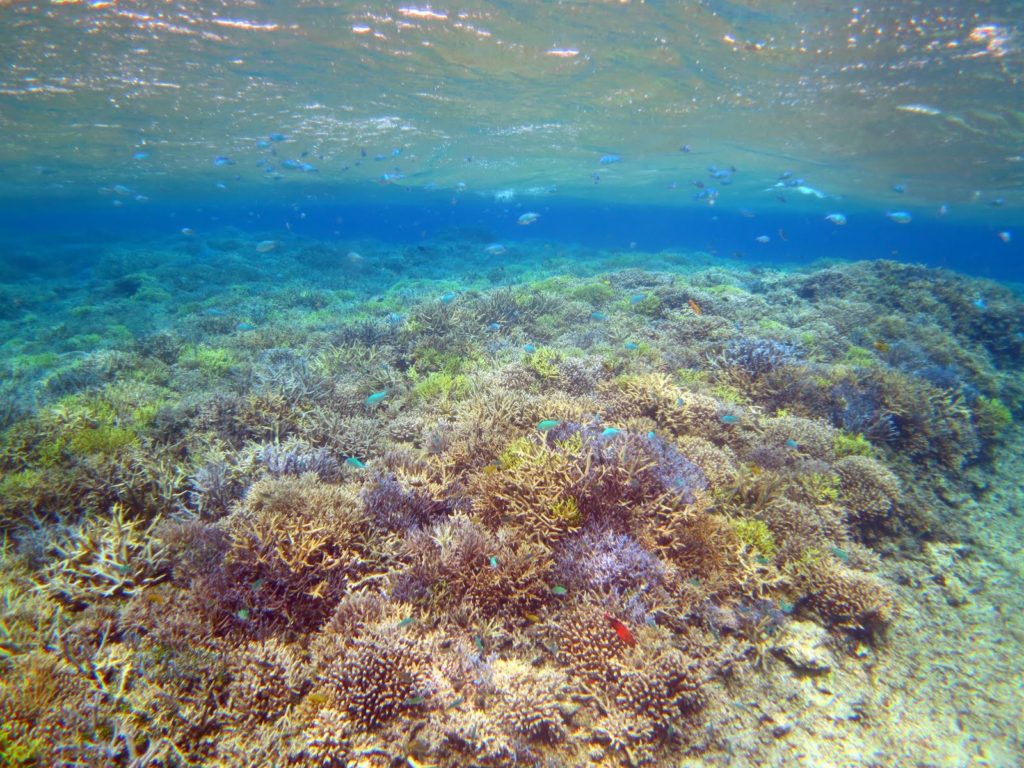
Ishinishi lagoon, the largest coral area in Japan, is home toOver 400 species of beautiful coralsare growing in clusters.
This is another spot that can only be reached by taking a tour.
The coral colony acts as a breakwater, so high waves do not come in, making snorkeling safe even for beginners.
Access: Depends on the tour
Click here for tours related to Seokseo Lagoon
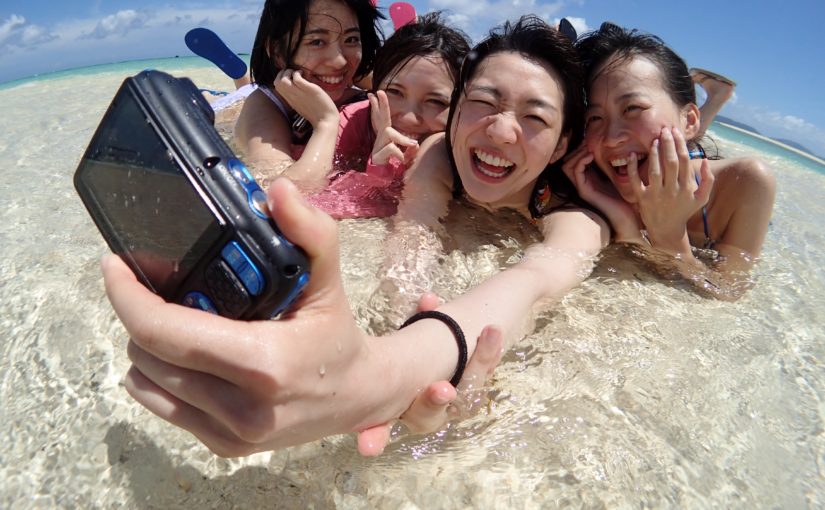 Ishigaki Island/One-Day Tour of 3 Popular Spots☆Landing on Phantom Island & Sea Turtle Snorkeling at Ishinishi lagoon (No.476)開始時間8:10 a.m. to 3:00 p.m.所要時間Approx. 6 hours14,500 yen →12,500yen
Ishigaki Island/One-Day Tour of 3 Popular Spots☆Landing on Phantom Island & Sea Turtle Snorkeling at Ishinishi lagoon (No.476)開始時間8:10 a.m. to 3:00 p.m.所要時間Approx. 6 hours14,500 yen →12,500yen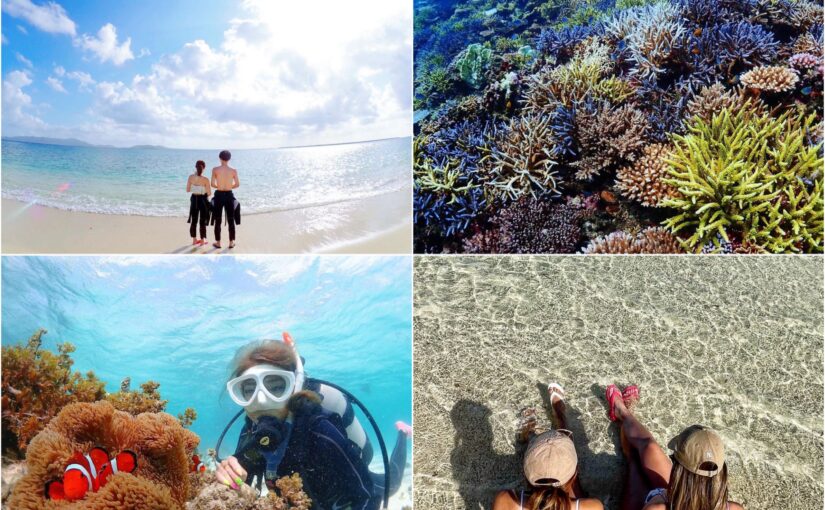 Ishigakijima/AM Half Day] Landing on a Phantom Island + Experience Diving in Japan's Best Coral Reef Small Group Diving for Beginners (No.323)開始時間8:30-11:30 a.m.所要時間Approx. 3 hours11,000 yen
Ishigakijima/AM Half Day] Landing on a Phantom Island + Experience Diving in Japan's Best Coral Reef Small Group Diving for Beginners (No.323)開始時間8:30-11:30 a.m.所要時間Approx. 3 hours11,000 yen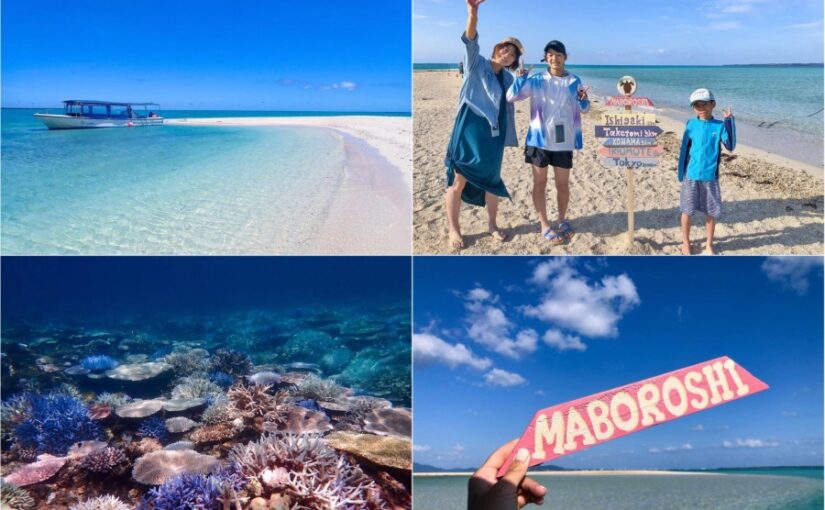 Special Winter SALE 【Choice of Ishigaki Island or Kohama Island】Half-day Ishinoko-Shore Landing + Ishinishi lagoon & Sea turtle snorkeling AM course《Mermaid experience available & photo gift included》 Beginners and children are welcome☆ (No.590)開始時間9:40-13:00所要時間Approx. 3 hours10,800 yen →9,800yen
Special Winter SALE 【Choice of Ishigaki Island or Kohama Island】Half-day Ishinoko-Shore Landing + Ishinishi lagoon & Sea turtle snorkeling AM course《Mermaid experience available & photo gift included》 Beginners and children are welcome☆ (No.590)開始時間9:40-13:00所要時間Approx. 3 hours10,800 yen →9,800yen
It's a worldwide problem.
What is the phenomenon of coral bleaching?
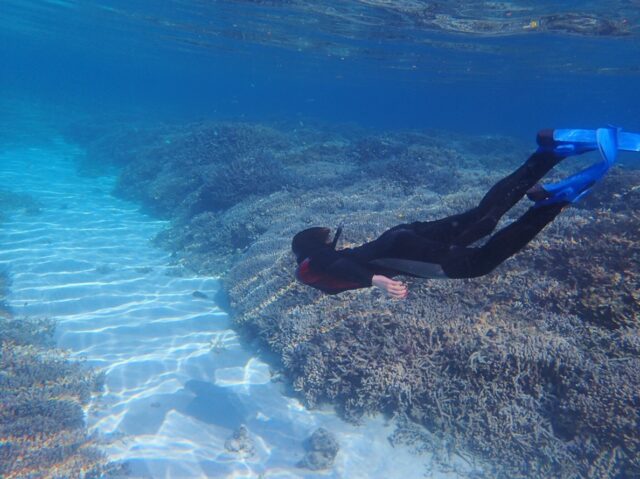
Corals protect marine ecosystems, provide important shelter for small fish, and clean seawater by photosynthesizing and releasing minerals.
It also protects the coast from typhoons and other high waves.live breakwaterIt functions as a
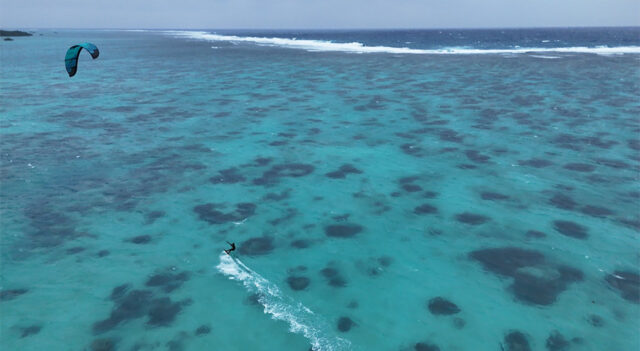
The phenomenon of coral reef bleaching around the world was shocking news in 2016, and Japan is no exception.
Coral bleaching is a phenomenon in which corals are stressed and their internalPhenomenon in which the body loses symbiotic algae and turns whiteof the
Prolonged bleaching will debilitate and, at worst, kill the coral.
To protect corals from bleachingIncrease in sea water temperature due to global warmingNot only from the hinterland, but also fromred clay runoffand domestic wastewaterseawater pollutionThere are many issues that must be addressed over the long term, such as measures to
◆ Abnormally large numbers of starfish
◆Red soil runoff from agricultural drainage and tourism development
◆Ocean pollution by domestic wastewater
Taking place on Ishigaki Island
Coral Reef Conservation Activities
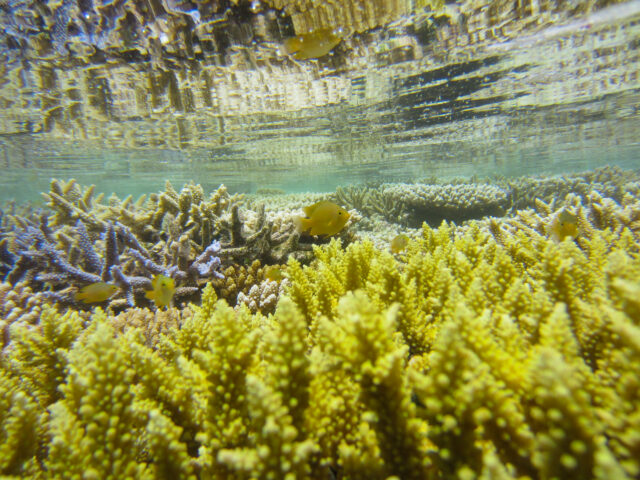
Coral is not only an important tourist resource for Ishigaki Island, but also important for marine life and the lives of islanders.
Here are some examples of coral conservation activities on Ishigaki Island.
Observe beautiful corals!
Click here for a ranking of recommended tours in Ishigaki Island.
1. coral cultivation and transplantation activities

On Ishigaki Island, research institutes and non-profit organizations are taking the lead in efforts to grow healthy coral and return it to the sea.
The facility nurtures the larvae and transplants the grown coral back into the ocean, and in cooperation with dive stores, conducts transplantation programs in which tourists can also participate.
2. extermination of crown-of-thorns starfish
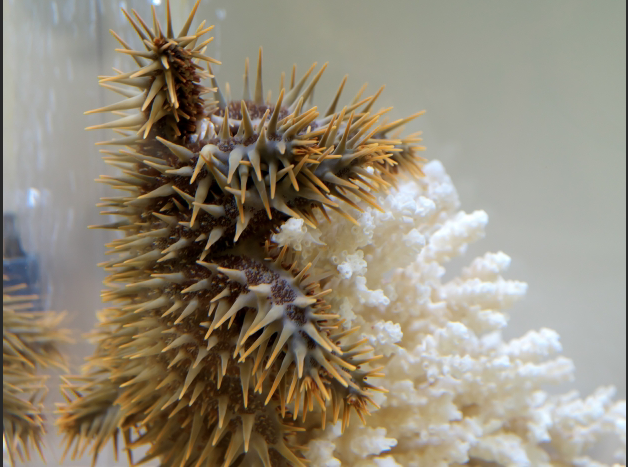
crown-of-thorns starfish (Acanthaster planci)is a coral-feeding organism that can cause severe damage to coral reefs when it occurs in large numbers.
Local divers and fishermen regularly conduct extermination work, and research institutions study the ecology of crown-of-thorns starfish and research methods to control their occurrence.
3. measures to prevent red soil runoff
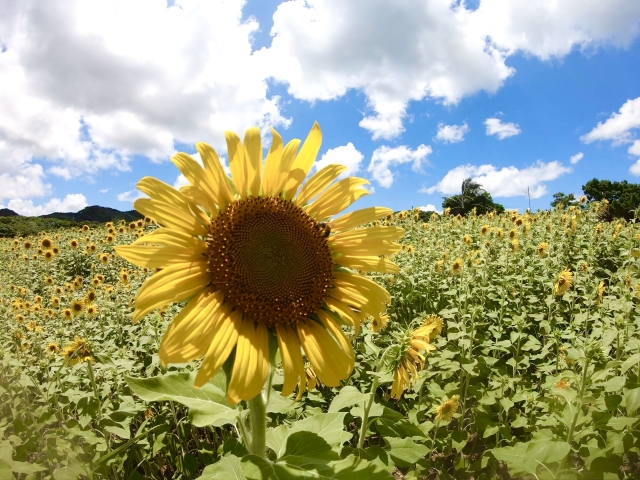
By construction of tourism development, etc.red clayinto the ocean can have a negative impact on corals.
Proper management of farmland (leaving vegetation, installing fences for disaster prevention, etc.) and tree planting activities (sunflowers, moonflowers, etc.) to prevent red soil runoff are being implemented.
4. promotion of eco-tourism

More and more environmentally friendly tours are being offered in order to balance tourism and environmental protection. They include establishing guidelines for snorkeling and diving that do not damage coral,
They also recommend the use of reef-safe (environmentally friendly sunscreen).
5. cooperation and educational activities with local residents
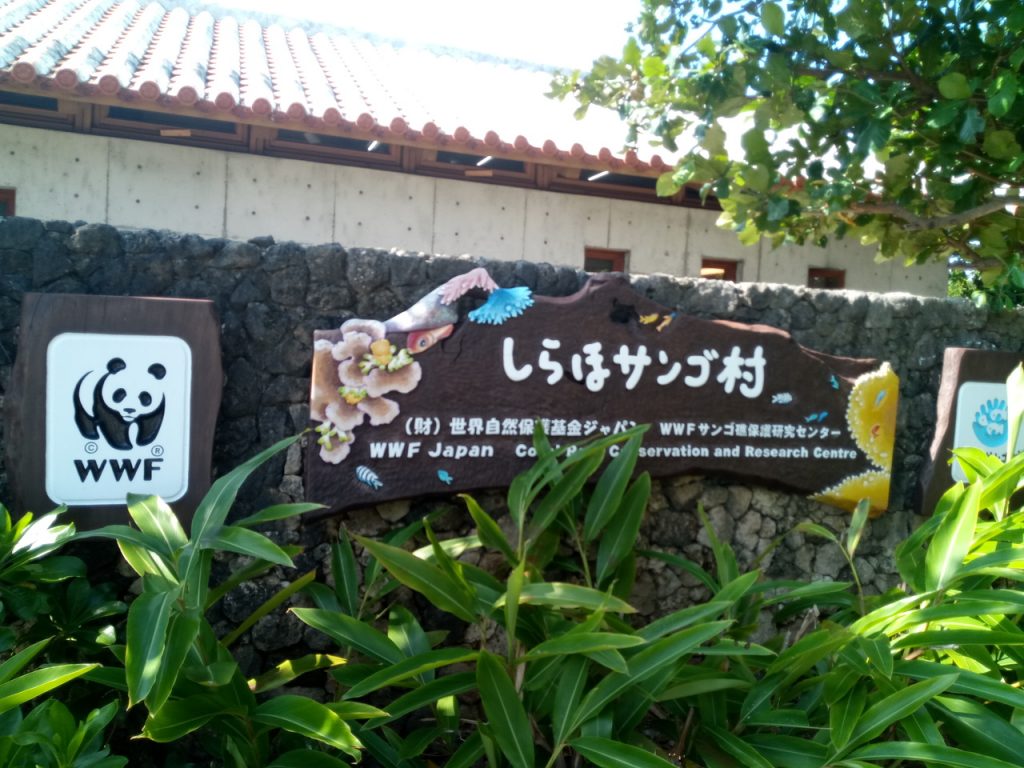
On Ishigaki Island, activities are also being undertaken to raise awareness of coral protection throughout the region.
WWF Japan has been focusing on coral reef conservation activities in the Nansei Islands since the 1980s. As part of its efforts, WWF Japan established the WWF Coral Reef Conservation Research Center "Shiraho Coral Village" in April 2000 and has conducted various conservation activities.
It has now been transferred to the local residents of Shiraho, and coral conservation activities continue.
For more information about Shiraho Coral Village, click here↓.
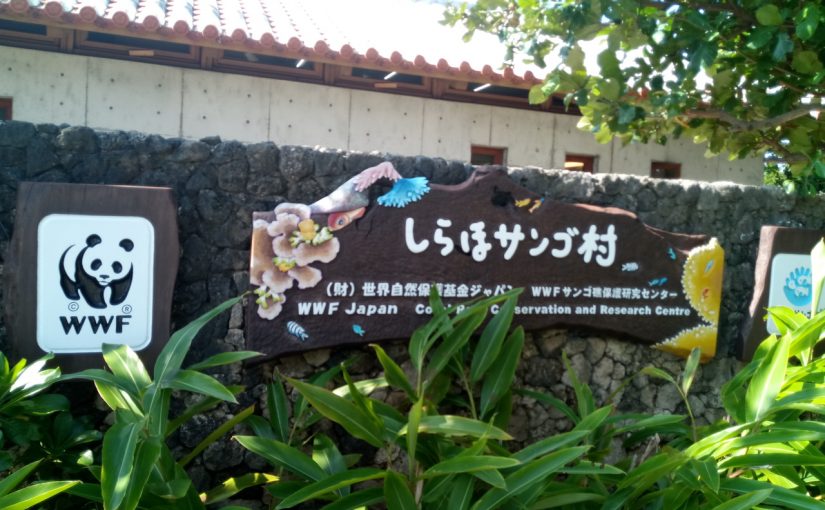 Ishigaki Island-Shiraho Coral Village Shiraho Coral Village is an exhibition facility located near Shiraho Beach on Ishigaki Island. It works to protect the corals of Shiraho Coast, which Japan is proud of in the world. The Sunday market held at Shiraho Coral Village sells Shiraho and Ishigaki Island's specialties every Sunday, and the sales [...].
Ishigaki Island-Shiraho Coral Village Shiraho Coral Village is an exhibition facility located near Shiraho Beach on Ishigaki Island. It works to protect the corals of Shiraho Coast, which Japan is proud of in the world. The Sunday market held at Shiraho Coral Village sells Shiraho and Ishigaki Island's specialties every Sunday, and the sales [...].
What you can do for coral
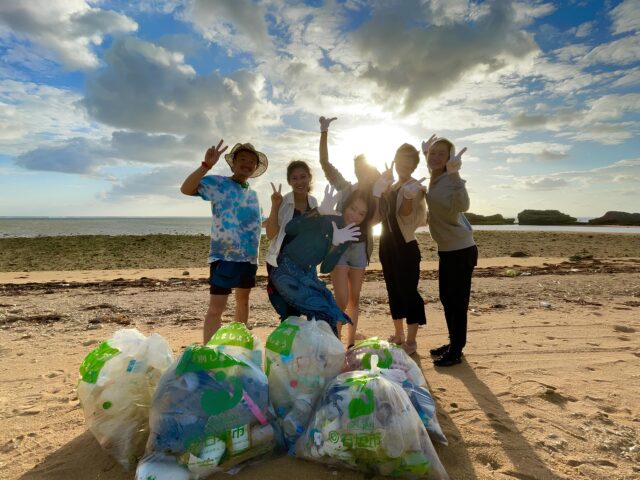
In order to protect the beautiful ocean and clean coral reefs of Ishigaki Island, it is important for as many people as possible to be interested in and be aware of tourism. Although you may have already protected the sea of Ishigaki Island, I would like to introduce a few things about the sea!
◆Do not touch, climb on, or stand on coral
◆Take your trash with you.
◆Participate in beach cleanups
Observe beautiful corals!
Click here for a ranking of recommended tours in Ishigaki Island.
Conclusion
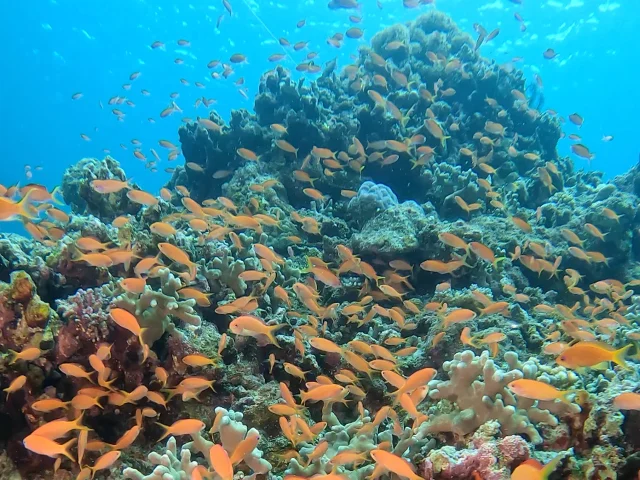
The most attractive point of Ishigaki Island is the beautiful sea.
I would be happy if you could enjoy sightseeing with full of excitement, remembering that the sea and corals are important for both the living creatures and the people of the island!
I hope that many people will continue to experience the "charming Ishigaki Island" for a long time to come.
↓Click here to read the article.
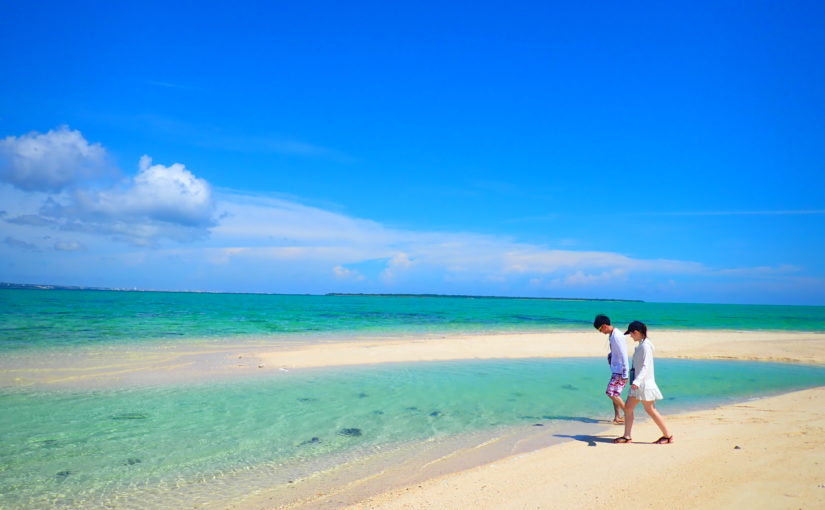 A complete guide to the 30 best sightseeing spots in Ishigaki Island! Popular Spectacular Views, Hidden Places, Recommended ActivitiesIshigaki Island, a "tropical paradise" is full of popular spots. There are many spots of interest such as nature, cityscape, restaurants, and marine activities! Let's check the recommended sightseeing spots in advance.
A complete guide to the 30 best sightseeing spots in Ishigaki Island! Popular Spectacular Views, Hidden Places, Recommended ActivitiesIshigaki Island, a "tropical paradise" is full of popular spots. There are many spots of interest such as nature, cityscape, restaurants, and marine activities! Let's check the recommended sightseeing spots in advance.
